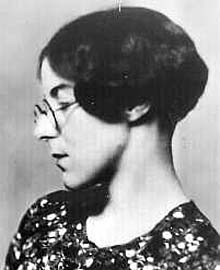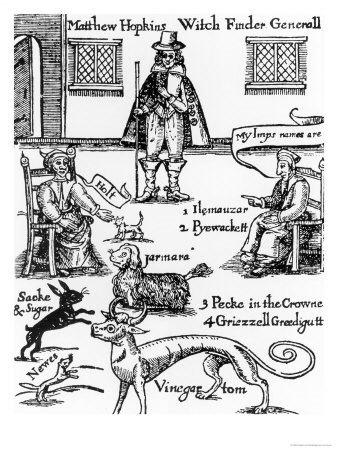What do you think?
Rate this book


222 pages, Paperback
First published January 1, 1926





To amuse herself she had cut the dough into likenesses of the village people. Curious developments took place in the baking.

“Mr. Arbuthnot certainly was not prepared for her response to his statement that February was a dangerous month. `It is,’ answered Laura with almost violent agreement. `If you are a were-wolf, and very likely you may be, for lots of people are without knowing, February, of all months, is the month when you are most likely to go out on a dark windy night and worry sheep.’”
and,
“Laura’s hair was black as ever, but it was not so thick. She had grown paler from living in London. Her forehead had not a wrinkle, but two downward lines prolonged the drooping corners of her mouth. Her face was beginning to stiffen. It had lost its power of expressiveness and was more and more dominated by the hook nose and the sharp chin. When Laura was ten years older she would be nut-crackerish.”
“But on the following summer the sandbags had rotted and burst and the barbed-wire had been absorbed into the farmer’s fences. So, Laura thought, such warlike phenomena as Mr. Wolf-Saunders, Fancy’s second husband, and Jemima and Rosalind, Fancy’s two daughters, might well disappear off the family landscape. Mr. Wolf-Saunders recumbent on the beach was indeed much like a sandbag, and no more arresting to the eye. Jemima and Rosalind were more obtrusive. Here was a new generation to call her Aunt Lolly and find her as indispensable as did the last.” p. 74
and,
“They condoned this extravagance, yet they mistrusted it. Time justified them in their mistrust. Like many stupid people, they possessed acute instincts. `He that is unfaithful in little things…’ Caroline would say when the children forgot to wind up their watches. Their instinct told them that the same truth applies to extravagance in little things. They were wiser than they knew. When Laura’s extravagance in great things came it staggered them so completely that they forgot how judiciously they had suspected it beforehand.” p. 82
“Laura hated him for daring to love it so. She hated him for daring to love it at all. Most of all she hated him for imposing his kind of love on her. Since he had come to Great Mop she had not been allowed to love in her own way. Commenting, pointing out, appreciating, Titus tweaked her senses one after another as if they were so many bell-ropes…. Day by day the spirit of the place withdrew itself further from her…. Presently she would not know it any more. For her too Great Mop would be a place like any other place, a pastoral landscape where an aunt walked out with her nephew.” pp. 163-4
“It’s like this. When I think of witches, I seem to see all over England, all over Europe, women living and growing old, as common as blackberries, and as unregarded. I see them, wives and sisters of respectable men, chapel members, and blacksmiths, and small farmers, and Puritans…. Well, there they were, there they are, child-rearing, house-keeping, hanging washed dishcloths on currant bushes; and for diversion each other’s silly conversation, and listening to men talking together in the way that men talk and women listen. Quite different to the way women talk, and men listen, if they listen at all…. Nothing for them except subjection and plaiting their hair…. Anyhow, even if it isn’t true of dynamite, it’s true of women…. Some may get religion, then they’re all right, I expect. But for the others, for so many, what can there be but witchcraft? That strikes them real. Even if other people still find them quite safe and usual, and go on poking with them, they know in their hearts how dangerous, how incalculable, how extraordinary they are…. Her soul – when no one else would give a look at her body even!... But you say: `Come here, my bird! I will give you the dangerous black night to stretch your wings in, and poisonous berries to feed on, and a nest of bones and thorns, perched high up in danger where no one can climb to it.’ That’s why we become witches: to show our scorn of pretending life’s a safe business to satisfy our passion for adventure…. One doesn’t become a witch to run around being helpful either…. It’s to escape all that – to have a life of one’s own, not an existence doled out to you by others, charitable refuse of their thoughts, so many ounces of stale bread of life a day…. pp. 239-43